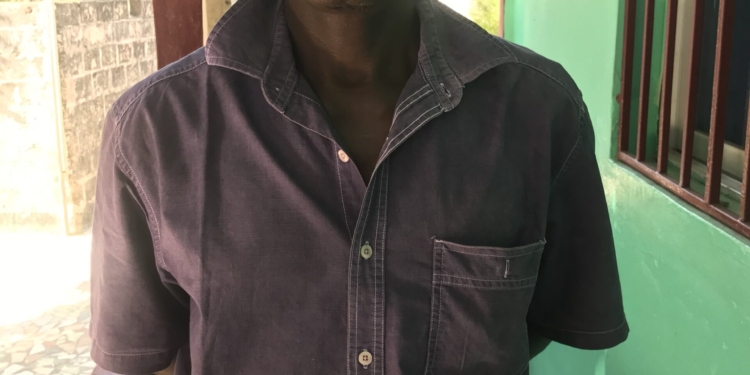By Zainab Jobarteh
Yahya Jammeh dealt ruthlessly with suspected coup plotters. Most suffered a common fate – death. The “lucky” ones were tortured and jailed for many years.
Omar Camara learnt this lesson soon after Jammeh came to power. He also learnt that you did not have to be a coup plotter to be branded one and punished.
Omar, 51, served in the Gambia National Army as a medic from 1984 to 1994. He was contingent medical personnel on a peacekeeping mission in Liberia in 1989. Although Omar was trained as a soldier, his duties dictated that he rarely dealt with guns or any sort of military weapon.
Until 1994, Omar was based in Yundum Barracks. He was transferred to Fajara Barracks soon after Yahya Jammeh grabbed power in July 1994. On the night of November 11, 1994, he was on duty at the medical centre of the barracks when shooting began. He remembered hearing rumours that there was going to be a coup. He didn’t believe the stories, dismissing them as “just a rumour”.
Then soldiers attacked the camp and started shooting at people “for no reason”. Omar was a victim. He said his attacker, Peter Singhatey, shot him in the right hip and killed his friend, Basiru Camara.
His captors did not care that he was in pain and bleeding as they dragged him and other soldiers into a vehicle. They were detained at Yundum Barracks and told to hire lawyers. But before they could act, military defenders were appointed for them.
In Omar’s view, the military lawyers did not know the difference between right and wrong. “We were going back and forth through the court process until finally the court ruled that we should be jailed for nine years,” he said.
Omar and eight other soldiers spent nine years in prison. They were detained at the notorious Mile 2 Prison for five years and then they were transferred to Jeshwang for the remaining four years. He could only describe the prison condition as “terrible”. His first days in detention were filled with pain. He was denied treatment for his wound and was not exempted from torture.
Omar is reluctant to go into details about the type of torture he suffered, just saying the prisoners were abused in “all sorts of ways”. When I pressed him for details, the only information he volunteered was that a special team was dedicated to beatings, and that detainees were beaten “like animals”.
On the day they were transferred to Jeshwang Prison, Omar said they were put in shackles and humiliated. They were hit with gun butts all the way from Mile 2 to Jeshwang. At their new home, the prisoners came to know a special place, nicknamed “Bambadinka”, which was set aside for beatings.
During the interview, I noticed that Omar never sat still. He was always moving about as if he was not comfortable sitting in a certain position for long. When I asked him about it, he explained that his old gunshot wound had affected his waist. He added that the beatings he had received had damaged his back, making it difficult for him to sit for a long time. He has not received proper medical care since his release from prison.
His freedom was not a cause for celebration. He came back home to find that his wife had left him, taking their daughter with her. She could not wait for him.
More suffering was in store for Omar’s family. Shortly after his release, his younger brother, Ebrima Camara, who was also in the army, was killed in unclear circumstances. He was also accused of taking part in an attempted coup. According to Omar, Ebrima, who was in his mid-20s, was tricked into believing that he was being transferred to Kanilai. He was killed on the way and his death made to look like the result of a road accident. His family was not allowed to uncover his body. They were told to just bury it because all the Islamic rituals had been conducted. Omar said he believed the soldiers were trying to conceal the real cause of his brother’s death. He said the family was angry that Ebrima was not only denied the right to live, but also a decent burial.
Throughout the long years of imprisonment and suffering, Omar has tried to find a rational explanation for what befell him and so many other fellow soldiers. He came to the conclusion that Jammeh acted the way he did when he first came to power because he was trying to get rid of the old soldiers, those who had served under President Dawda Jawara, whom he had overthrown, because he did not trust them to be loyal to him.
Omar did not get an opportunity to testify at the Truth, Reconciliation and Reparations Commission. He said he would have welcomed the chance, not only to confront the pain he had suffered, as many victims did, but also as a step in the process of obtaining justice. For Omar, that would be the greatest victory.







